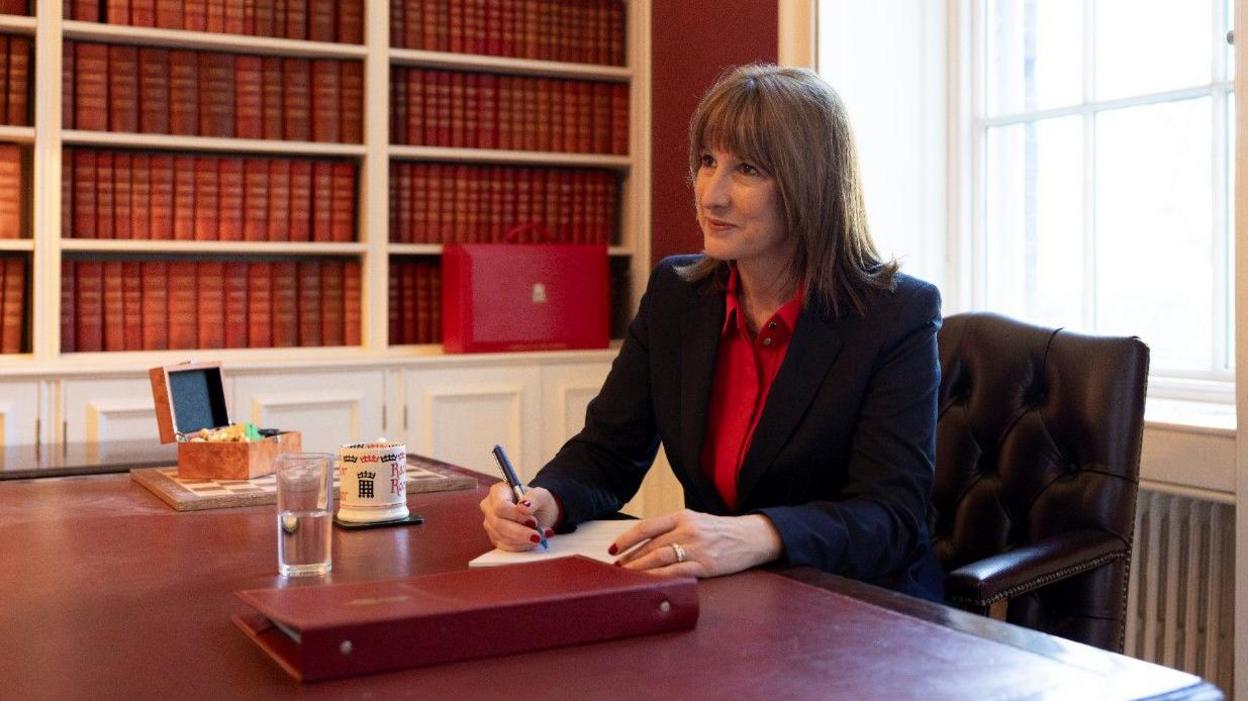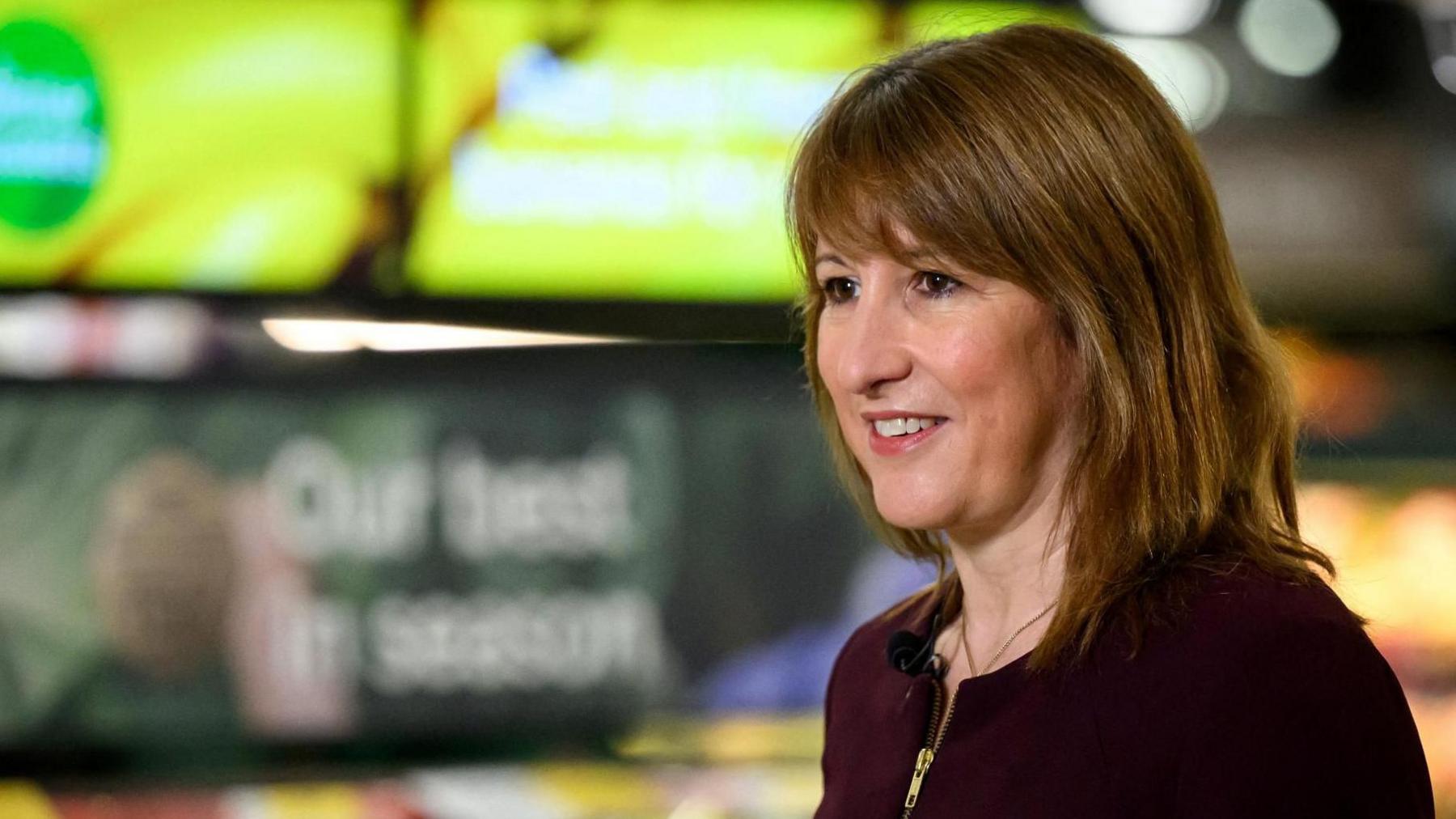What does the Budget mean for London?
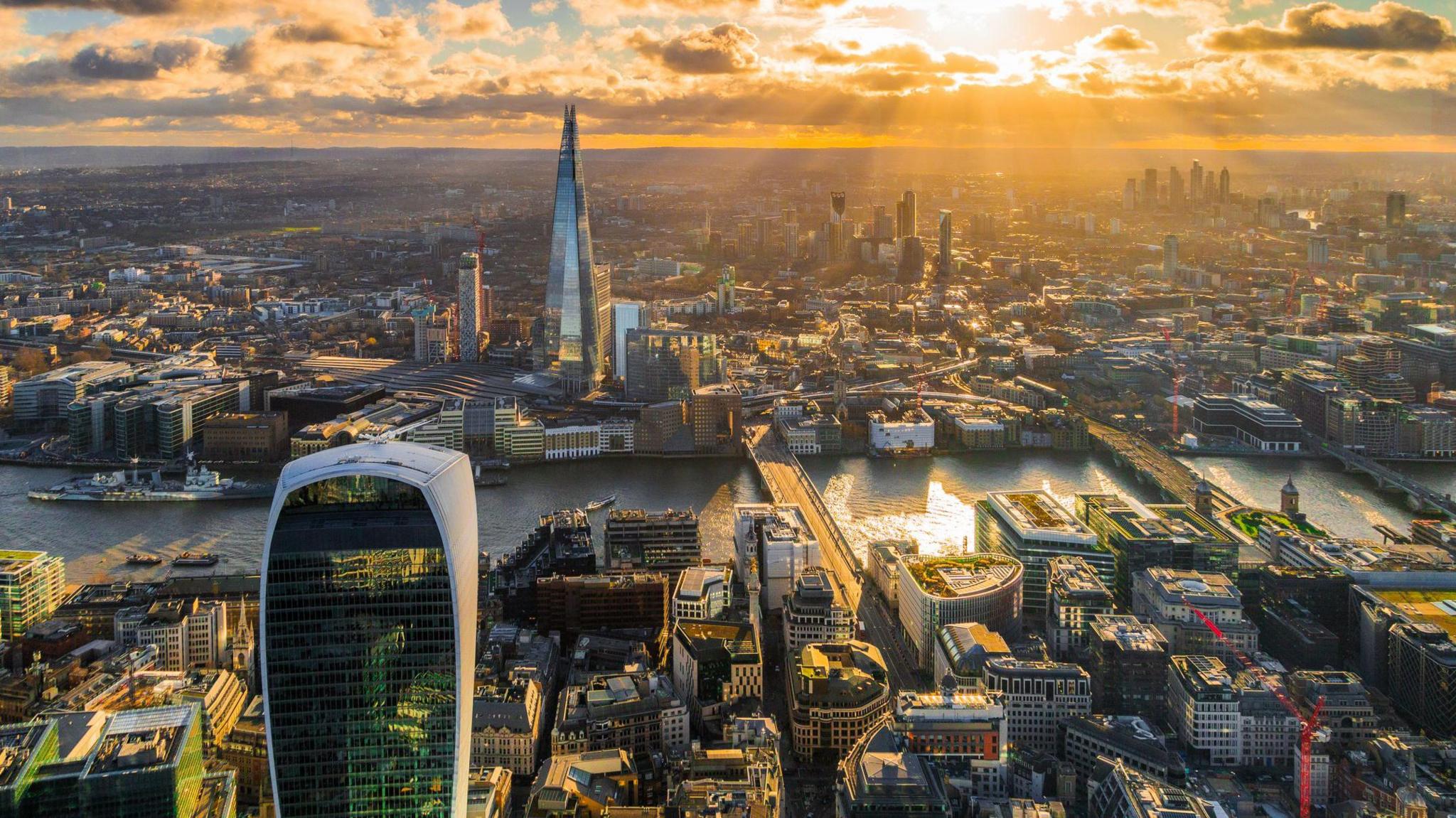
BBC London analyses what Rachel Reeves's Budget means for the capital
- Published
Chancellor Rachel Reeves has announced an increase in taxes in the Budget, which will raise the government's fiscal headroom to £21.7bn and fund spending to bring down the cost of living for "working people".
The statement, made in the House of Commons after the details were published early in error by the Office for Budget Responsibility, set out changes including a rise in the minimum wage and an electric vehicle (EV) mileage tax.
Here BBC London analyses what Reeves's changes mean for the capital.
Working in the capital
Tens of thousands of workers in London will receive a pay rise from April due to an increase in the minimum wage, which the government announced ahead of the Budget.
The hourly rate for over-21s will rise by 50p to £12.71, with workers aged 18-20 seeing an 85p rise to £10.85, and under-18s and apprentices getting 45p more to £8 an hour.
In London, there are approximately 153,200 minimum wage workers aged 16 and over, according to the government's 2024 statistics.
The highest number of those - 10,000 - work in Westminster.
Reeves argued the cost of living was still the biggest issue for working people but businesses warned that further increases to the minimum wages could result in hiring freezes.
Michael Kill, chief executive of Night Time Industries Association, called the Budget a "hammer blow to the already fragile night-time economy".
He said the rise in minimum wage would present a serious challenge for the sector and he was "deeply concerned" by direct and indirect tax increases.
London's mayor Sir Sadiq Khan said the rise in minimum wage was "great news" for young people working in the capital.
Reeves said in her Budget that retail, hospitality and leisure businesses would see "permanently lower tax rates", funded by higher rates on properties worth £500,000 or more.
London's transport
BBC London's transport and environment correspondent Tom Edwards says: "Reeves confirmed the government was backing plans to extend the Docklands Light Railway (DLR) to Thamesmead in the Budget.
"It would see a new line built from Gallions Reach to a new station at Beckton Riverside and then across the river to Thamesmead.
"The DLR extension is a significant infrastructure addition and will open up the area to redevelopment.
"It will be funded through Transport for London (TfL) and Greater London Authority borrowing.
"A new town of up to 25,000 new homes will emerge off the back of it, although it will take many years."
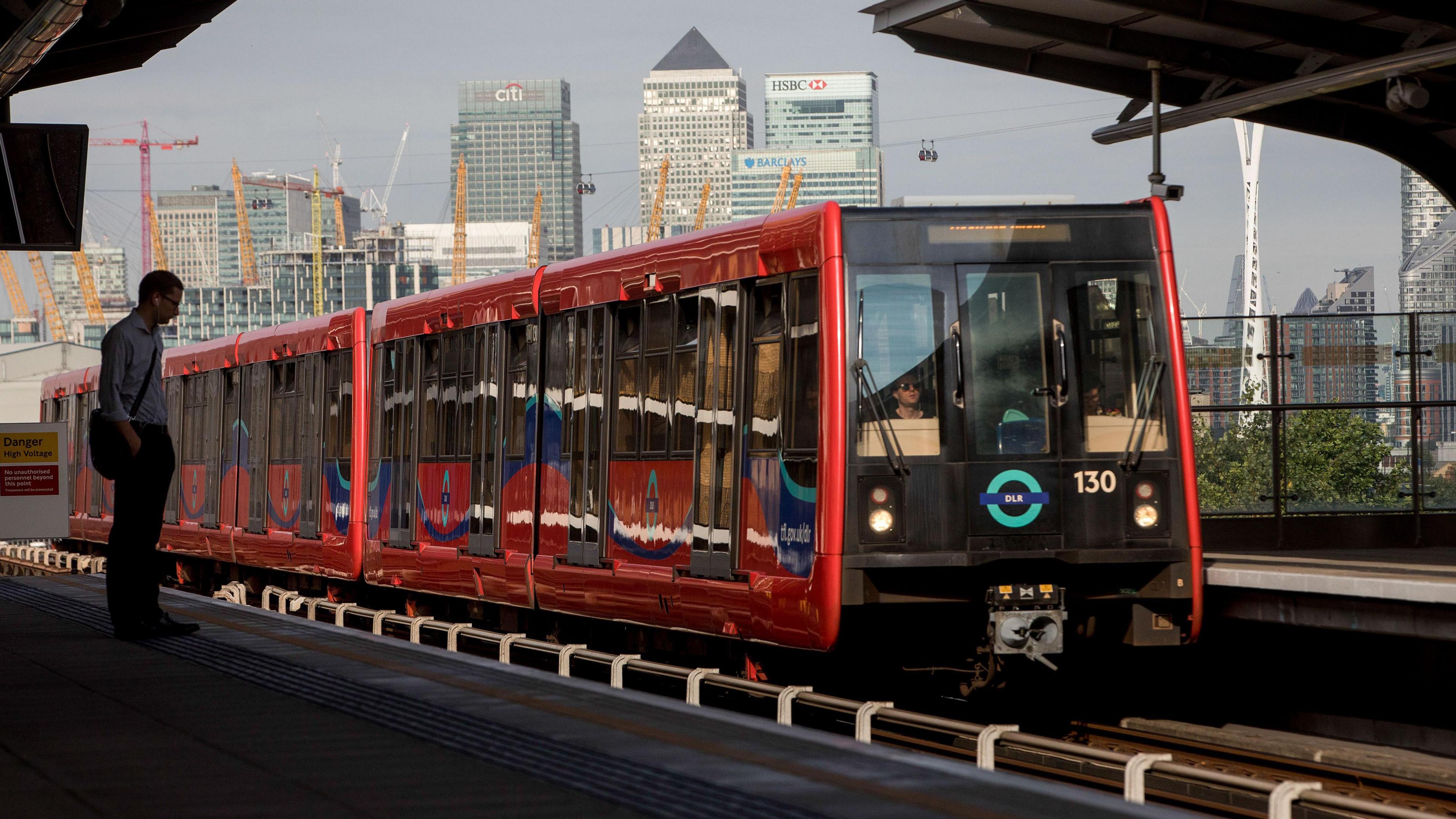
The DLR extension is a significant infrastructure project for London
He adds: "The chancellor's Budget does not include funding for the Bakerloo line extension or the West London Orbital.
"More immediate is the fares freeze that was announced on Sunday. That will help rail commuters in the south-east.
"The transport secretary is Heidi Alexander, formerly the deputy mayor for transport in London and the freeze is straight out of the mayor Sir Sadiq's playbook.
"A four-year freeze at TfL from 2016 cost £640m. The Department for Transport will hope the considerable compound cost is partially offset by attracting passengers back to the trains.
"It is not quite clear yet what it means for TfL's fares, which are controlled by the mayor.
"Previously the government said Tfl should increase fares in March by inflation (RPI).
"But could there be more money in the government pot for a similar freeze there? Or will Londoners' fares increase when everywhere else the fares are frozen?
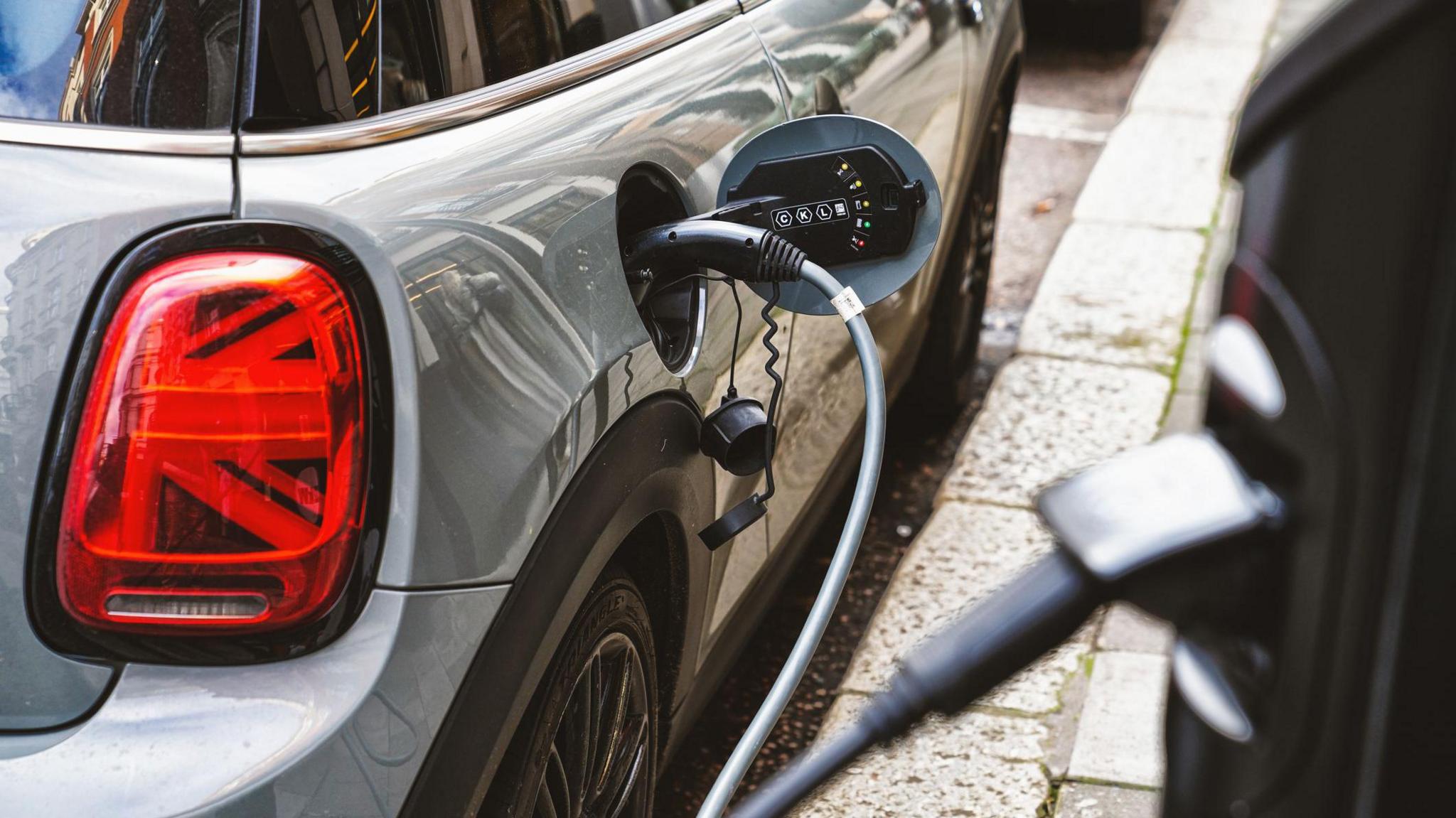
Electric and hybrid vehicle drivers will be facing a mileage-based tax from 2028
"Meanwhile, those with electric vehicles will be hit by a new mileage tax - set at 3p per mile for electric vehicles and 1.5p per mile for hybrid vehicles - from 2028, two years after the capital's congestion charge changed to include EV drivers."
Mansion tax
Karl Mercer, BBC London political editor, says: "The Budget included a new tax on homes worth more than £2m, which will affect more than 100,000 households in England.
"Mansion tax will have an impact in London more than anywhere else in the rest of the country. Something like 70% of all homes valued more than £2m are in the capital.
"Properties more than £2m will be charged £2,500 annually, and properties worth more than £5m will be charged £7,500 on top of council tax.
"London's mayor told BBC London he was concerned about people in the capital who were asset rich, having lived in their home for years, but do not have a lot of cash. This applies particularly to older people.
"Alongside the mansion tax, council tax bands F, G and H will also be revalued. In London, there are more than 68,000 properties in band H, which currently includes homes worth £320,000 and up.
"The highest number of these properties are in Westminster with 17,272, and Kensington and Chelsea, with 15,520.
"The changes to the bands will not be introduced until 2028, when the revaluation is completed."
Tourist tax
Devolved mayors, including London's Sir Sadiq, will be given the power to impose a "modest" charge on visitors staying in hotels, bed and breakfasts, guest houses and holiday lets.
The capital's mayor said the tourist tax would allow City Hall to "improve the tourist experience" and prevent Londoners "inadvertently suffering" from "over-tourism".
"I'm going to work really closely with those in hospitality, those in tourism, those in the business community and with our councils to get the best possible scheme," he said.
It will give him the ability to raise about £250m a year, which will be spent on improving local infrastructure in the areas where there are lots of tourists.
Adam Hug, leader of Westminster City Council, whose authority includes some of central London's major attractions, urged that revenue from the tax should be shared with local councils rather than kept by mayors.
Allen Simpson, UK Hospitality chief executive, said he was "incredibly worried" about its impact on the sector.
Listen to the best of BBC Radio London on Sounds and follow BBC London on Facebook, external, X, external and Instagram, external. Send your story ideas to hello.bbclondon@bbc.co.uk, external
Related topics
- Published35 minutes ago
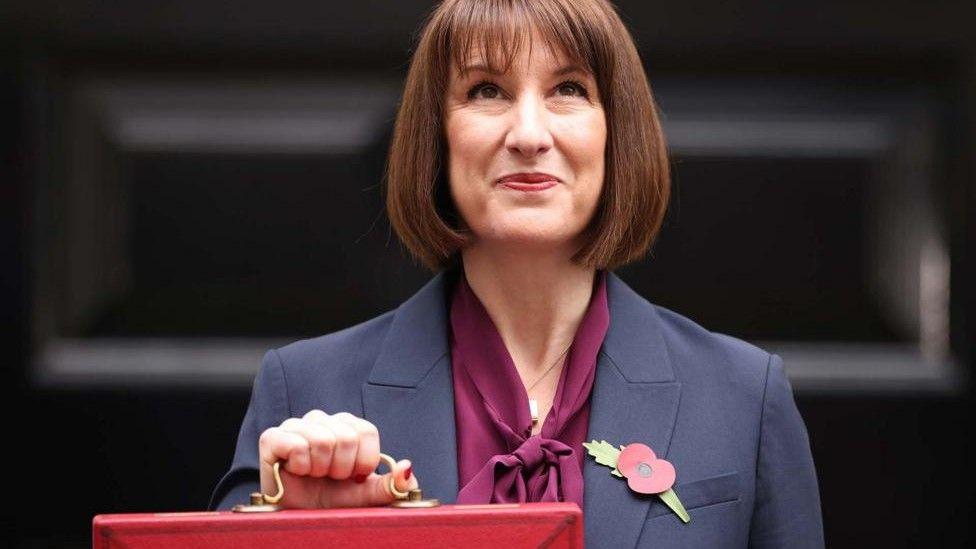
- Published22 hours ago
